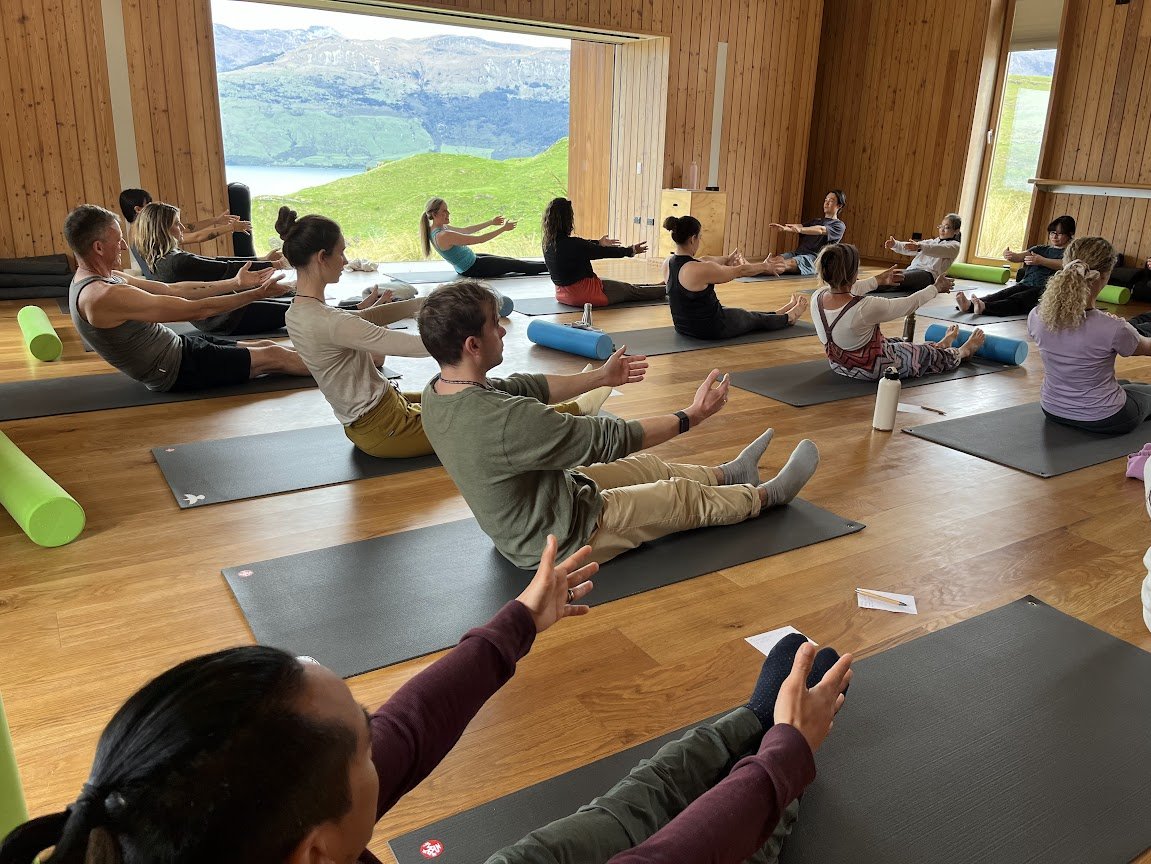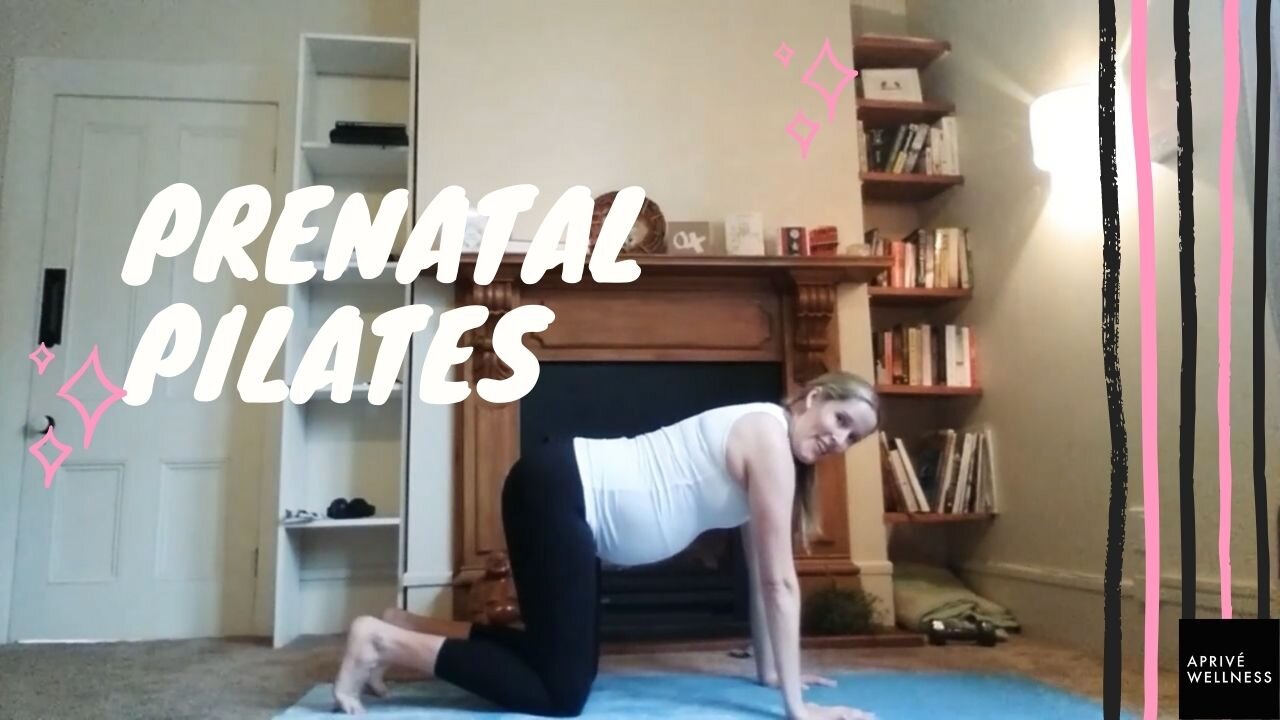
Aprivé Wellness Blog
What causes running injuries?
If you run for fun and fitness, you've probably experienced an injury of some sort. Not something serious needing surgery or time off work, but an injury that makes you take it easy for at least a week. If you've had an injury, you may have discovered what caused it; like a sprained ankle from stepping off a curb wrong, but you may also be a bit bewildered. I've had so many clients who have torn their hamstring from running the same track they run everyday. They're confused and frustrated, and they always ask: Why did this happen today?
What are the most common injuries in women who run?
• Plantas fasciitis
• Knee pain/ITB friction syndrome
• Ankle sprain
• Hip pain
• Calf tear
• Hamstring insertion tear
A common question I get asked is: Why do we get injured?
Many runners run the same tracks, similar distances and in the same footwear, yet get injured, seemingly randomly. However! It turns out these injuries are far from random. Below are the most common reasons for injury in runners…
1.) Sudden changes in training causes injury
One of the main causes of running injuries is rapid alterations in training frequency, duration and intensity.
Why? Your muscles haven’t developed the endurance strength required, leading to increased fatigue, poor foot placement, decreased pelvic stability and eventually….injury.
Let’s look at a scenario. You usually run three times a week, for 10kms, along a flat trail. In 4 months you have enrolled in a 21km mountain run. How do you change your training without injury?
How to train for a half marathon
a. Frequency: Start training by adding a shorter run, an additional day per week. Don’t try running six days, straight away! Fatigue and DOMS (delayed onset muscle soreness) will be far too much for your body and you'll end up injured.
b. Duration: Running for 1.5 hours, three days a week is where you’re at - so increase by increments of ten minutes per fortnight. You’ll be at 21kms in no time, but don’t force it straight away.
Overuse injuries are most common in runners with sudden increases in training duration. Shin splints? No thanks!
Hill Running
c. Intensity: This is the clincher. You may wake up feeling energised and stronger than ever one morning, but don’t be tempted to sprint up the biggest hill you can find. Running uphill puts huge stresses on the achilles tendon and hip flexors. When they’re not conditioned for hill running, the excessive loading and propulsion forces lead to tendonopathies (tendon conditions) and inflammation.
Running downhill
Don't try sprinting downhill straight away, and don't choose a hill with a huge incline. Running downhill requires huge concentric (shortening) contraction force through the quads, plus lengthening through the hamstrings. Avoid knee pain by slowly and gently increasing your hill training with small increments of incline, length and speed.
You will reach your goal, just remember to do it steadily. If you’re still unsure, contact a trainer or running program specialist. They will help you, step by step, to prepare for your event.
What else causes injuries?
2.) Long Distance Running
Recent studies have found those who run greater than 40 miles per week tend to be injured more. 40 miles? That’s almost 65 kms!
Plenty of people run long distances frequently without injury, but understanding the huge biomechanics demands of long runs is important. A lot of Physiotherapists and Kinesiologists are also running coaches, so get in touch with a reputable Physio to help keep you running safely.
3.) One time runners
Women who run once a week or less are more likely to be injured than those who run frequently. Don’t be discouraged if you’re an occasional runner. Ensure you do a correct warm up, and indulge in strengthening during the week. This can be yoga, pilates, aerobics classes, dancing, rpm - anything that encourages lower leg strengthening! Be keeping your hips and core strong, your biomechanics will be at their best, making you less likely to get injured when you run.
If you're injured right now, you're probably frustrated and really 'over it.' I've treated so many people with injuries and I wanted to share what I've learned along the way. Check out this handy article: The key to injury recovery .
Have you ever had a running injury?
The key to injury recovery
I've helped treat people of all ages for injuries of all kinds, and the same thing always seems to help them overcome their hurdles: Understanding.
Injury management made easy
While working at a private sports Physiotherapy clinic in Melbourne, a woman came to me with shoulder impingement and an x-ray report. She spoke with an Italian accent but had no problem understanding English. What she didn't understand was her doctors. They had told her she was getting surgery on her shoulder, but she wasn't exactly sure why. When she'd asked, they'd referred her to a nurse who said she didn't know as she'd walked quickly away to see another patient.
Bewildered and frustrated, she'd been referred to me, and our entire first 40 minute session was spent explaining her injury, explaining the x-ray report, and helping her understand her condition. I underlined words on the report and re-wrote them. Scapula became shoulder blade, clavicle became collar bone, acromium became hook of the shoulder (that's a terribly rough translation!) and bursa became little pillow.
Like any translation from one language to another, some accuracies get lost along the way, but the most important thing is to create understanding.
Injury recovery demystified
You don't have to be able to read an x-ray report to understand your injury, but you do need a support team. Recently I was honoured to be a guest on the popular US podcast Wellness Force by the charming Josh Trent, and we discussed the importance of a good health professional and community in injury recovery. A good Physiotherapist will explain your injury to you, and change what was a confusing, intimidating condition into a manageable issue.
Many health-professionals, like stockbrokers, bank on the fact you don't understand what they're talking about. Take back control and speak up!
Join a community rehab program, sign up for a rehabilitation class at your gym, or even jump online and find an injury forum. The internet has brought everyone closer together, and there are likely so many people who have experienced what you're going through.
You don't have to live through your rehabilitation or injury alone. Find a good health professional, support forum and ask as many questions as you need to ask. Please though, don't Google your questions. You might end up scaring yourself senseless, thinking you have an injury that sounds just like yours but isn't quite the same. Ask a health professional in-person! It will make all the difference to your recovery, and help you gain solid understanding of your injury and your path to recovery.
The importance of patient education
For the health professionals out there, please don't forget patient education. Clever people like David Butler and Lorimer Moseley, the authors of Explain Pain, have found the overwhelming positive influence of patient education. Every patients wants to know what's really going on with them, and it's hard to remember they don't speak anatomy. Taking the time to educate your patients can help them recovery quicker, helping make you look like a star!















Learn when it’s safe to start walking after a C section, how to ease back into movement, and what to expect in your recovery timeline.